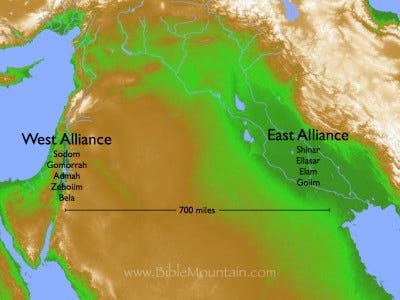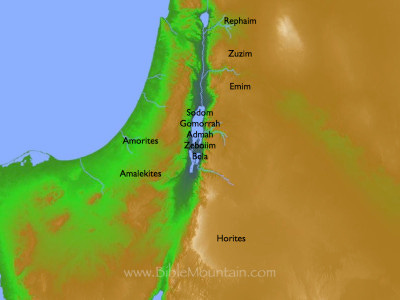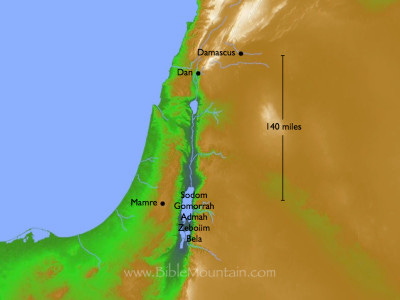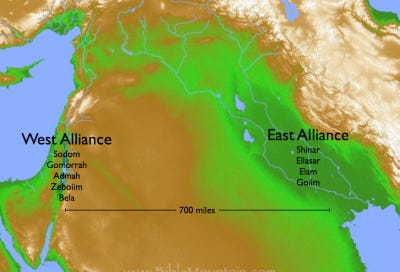Should athletes publicly praise God?
Have you ever watched an athlete go on TV and thank God for their talent and success? Is that appropriate? Does it help God? Are there any negative consequences of doing this?
On the one hand, the Bible tells us to praise God. Consider this verse from Hebrews.
Heb. 13:15 Through Him then, let us continually offer up a sacrifice of praise to God, that is, the fruit of lips that give thanks to His name.
We are clearly commanded to praise God. Consider also Psalm 150.
Psa. 150:1 ¶ Praise the LORD! Praise God in His sanctuary; Praise Him in His mighty expanse.
Psa. 150:2 Praise Him for His mighty deeds; Praise Him according to His excellent greatness.
Psa. 150:3 ¶ Praise Him with trumpet sound; Praise Him with harp and lyre.
Psa. 150:4 Praise Him with timbrel and dancing; Praise Him with stringed instruments and pipe.
Psa. 150:5 Praise Him with loud cymbals; Praise Him with resounding cymbals.
Psa. 150:6 Let everything that has breath praise the LORD. Praise the LORD!
This Psalm encourages us to praise God loudly and boldly. The Bible clearly tells us to praise God. However, what if an athlete goes on TV and praises God, but those that watch him on TV don't understand the term "god"? Is that still helpful? In our culture, the word "god" means different things to different people. When an athlete thanks god, which god is he talking about?
[widgets_on_pages id=“ProductOne”]
There is a story in Genesis 14 that illustrates how to deal with this confusion. Genesis 14 tells us about a battle between two groups of kings. Verse 1 lists one group of kings. I am going to call these kings the East Alliance.
Gen. 14:1 ¶ And it came about in the days of
Amraphel king of Shinar,
Arioch king of Ellasar,
Chedorlaomer king of Elam, and
Tidal king of Goiim,
Verse 2 lists the second group of kings. I am going to call these kings the West Alliance. (I have added words in brackets to identify who the pronouns refer to.)
Gen. 14:2 that they [The East Alliance] made war with
Bera king of Sodom, and with
Birsha king of Gomorrah,
Shinab king of Admah, and
Shemeber king of Zeboiim, and
the king of Bela (that is, Zoar).
Gen. 14:3 All these [The West Alliance] came as allies to the valley of Siddim (that is, the Salt Sea).
Gen. 14:4 Twelve years they [The West Alliance] had served Chedorlaomer, but the thirteenth year they [The West Alliance] rebelled.

The West Alliance had been serving Chedorlaomer, but they rebelled. Chedorlaomer and the East Alliance took action against the West Alliance. First they conquered cities surrounding the West Alliance.
Gen. 14:5 In the fourteenth year Chedorlaomer and the kings that were with him, came and defeated the Rephaim in Ashteroth-karnaim and the Zuzim in Ham and the Emim in Shaveh-kiriathaim,
Gen. 14:6 and the Horites in their Mount Seir, as far as El-paran, which is by the wilderness.
Gen. 14:7 Then they turned back and came to En-mishpat (that is, Kadesh), and conquered all the country of the Amalekites, and also the Amorites, who lived in Hazazon-tamar.

Then the two alliances fought each other.
Gen. 14:8 And the king of Sodom and the king of Gomorrah and the king of Admah and the king of Zeboiim and the king of Bela (that is, Zoar) came out; and they [The West Alliance] arrayed for battle against them [The East Alliance] in the valley of Siddim,
Gen. 14:9 against Chedorlaomer king of Elam and Tidal king of Goiim and Amraphel king of Shinar and Arioch king of Ellasar — four kings against five.
The East Alliance defeated the West Alliance (notice the words in red). Notice what happened to Lot.
Gen. 14:10 Now the valley of Siddim was full of tar pits; and the kings of Sodom and Gomorrah fled, and they fell into them. But those who survived fled to the hill country.
Gen. 14:11 Then they [the East Alliance] took all the goods of Sodom and Gomorrah and all their [Sodom and Gomorrah's] food supply, and departed.
Gen. 14:12 They [The East Alliance] also took Lot, Abram’s nephew, and his [Lot's] possessions and departed, for he [Lot] was living in Sodom.
[widgets_on_pages id=“ProductTwo”]
The kings of Sodom and Gomorrah fled and Lot was captured. What did Abram do when he heard that Lot had been captured?
Gen. 14:13 ¶ Then a fugitive came and told Abram the Hebrew. Now he was living by the oaks of Mamre the Amorite, brother of Eshcol and brother of Aner, and these were allies with Abram.
Gen. 14:14 When Abram heard that his relative had been taken captive, he led out his trained men, born in his house, three hundred and eighteen, and went in pursuit as far as Dan.
Abram went to rescue Lot with 318 men. Notice that these 318 men were born in Abram's house. Think about how wealthy Abram had to have been in order to have enough servants to give birth to 318 men of war fighting age. As for the East Alliance, the Bible doesn't tell us how many soldiers they had; however, the East Alliance was 4 cities. While it is probably safe to assume that Abram was outnumbered, cities in those days were not necessarily very big, so there is a possibility that Abram was not outnumbered. If Abram was not outnumbered, then the fact that he was able to muster as many soldiers as four cities shows how wealthy he was and how many servants he had.
Next, there was a second battle. Who won?
Gen. 14:15 He [Abram] divided his forces against them [the East Alliance] by night, he [Abram] and his servants, and defeated them [the East Alliance], and pursued them as far as Hobah, which is north of Damascus.
Gen. 14:16 He [Abram] brought back all the goods, and also brought back his relative Lot with his possessions, and also the women, and the people.

Abram achieved victory over the kings of the East Alliance and rescued Lot.
Next, Abram met Melchizedek. Who was Melchizedek and who did he credit with Abram's success? Notice the term used to refer to God.
Gen. 14:17 ¶ Then after his [Abram's] return from the defeat of Chedorlaomer and the kings who were with him [Chedorlaomer], the king of Sodom went out to meet him [Abram] at the valley of Shaveh (that is, the King’s Valley).
Gen. 14:18 And Melchizedek king of Salem brought out bread and wine; now he [Melchizedek] was a priest of God Most High.
Gen. 14:19 He [Melchizedek] blessed him [Abram] and said, “Blessed be Abram of God Most High, Possessor of heaven and earth;
Gen. 14:20 And blessed be God Most High, Who has delivered your [Abram's] enemies into your hand.” He [Abram] gave him [Melchizedek] a tenth of all.
Melchizedek was a priest of God Most High and he gave God Most High the credit for Abram's victory. The Bible uses the phrase "God Most High" three times in this passage. The phrase "God Most High" is a way of distinguishing the one and only true God from all the other false Gods that existed at that time. In other words, Melchizedek made it clear that it wasn't just any god that delivered Abram's enemies into his hand, it was the God who was above all other Gods. It was the one and only God of the Bible who gave Abram his victory.
[widgets_on_pages id=“ProductThree”]
What about us? When we give God the credit for something, do we do it in a way that makes it clear which god we are referring to. There are many false gods in our society. If we simply thank god for something, we are not necessarily communicating that we are giving the credit to the God of the Bible.
How do we communicate clearly? Genesis 14 differentiates God by calling Him God Most High (the God above all other gods). If we publicly praise God, it is not enough to just use the word "god". We should use wording that makes it clear we are praising the one and only true God, the God of the Bible, the God who is above all other gods.
What term should we use to refer to God? Is Yahweh worthy of our allegiance?
Do you know anyone who would be interested in reading this post?
If yes, please tell them about www.BibleMountain.com or use one of the links below to share this post via email, Facebook, Twitter, or other social media..


